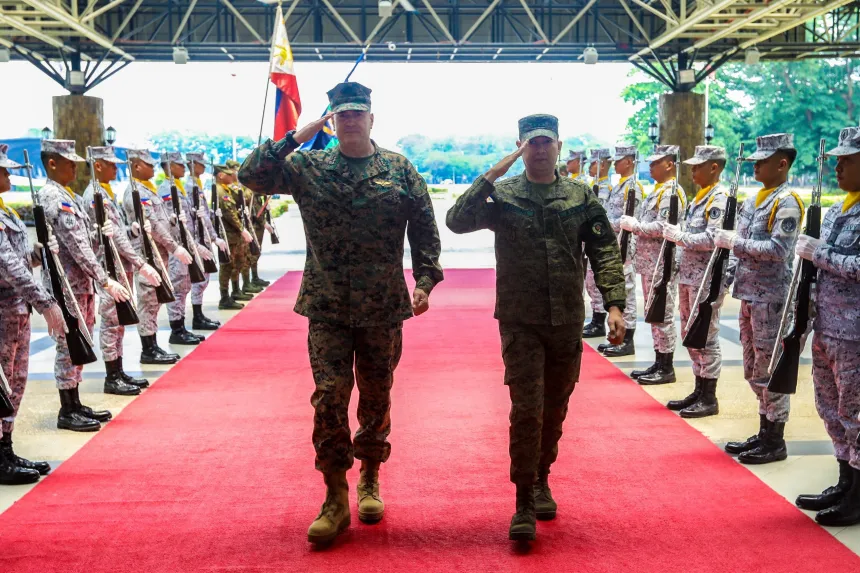The Philippines and the United States have kicked off three weeks of large-scale joint military exercises dubbed “Balikatan,” aimed at strengthening regional deterrence amid growing concerns over Beijing’s assertiveness in the South China Sea.
The annual exercises, which began Monday, will involve around 17,000 troops and feature, for the first time, a full-scale air and missile defense simulation. Philippine President Ferdinand Marcos Jr. is expected to attend the simulation, underscoring the importance Manila places on its deepening defense ties with Washington.
Lieutenant General James Glynn of the US Marine Corps emphasized the enduring strength of the alliance at the opening ceremony in Manila, saying, “We will demonstrate not just our will to uphold our mutual defense treaty… but our matchless capability to do so.”
The drills come at a time of heightened maritime tensions between the Philippines and China. Confrontations over disputed areas in the South China Sea have increased in recent months, prompting Manila to reinforce its security alliance with the US. Balikatan 2024 will feature the deployment of advanced US weaponry, including the highly mobile NMESIS anti-ship missile system, with some systems stationed near the Bashi Channel an important maritime passage between northern Philippines and Taiwan.
Australia and Japan will also participate with smaller contingents, reflecting wider regional cooperation against perceived threats from China.
Philippine military leaders have been vocal about upgrading their defense capabilities. Chief of Staff Romeo Brawner recently confirmed Manila’s intent to acquire more missile systems, warships, and fighter jets. This includes a potential $5.58 billion deal for F-16 fighter jets from the US, currently under negotiation, and the recent delivery of a corvette-class warship from South Korea.
With Manila’s geographical proximity to Taiwan, military analysts note the Philippines’ strategic importance in any potential conflict involving China. Brawner has acknowledged that the country could “inevitably” be involved if tensions escalate in the Taiwan Strait.
As Balikatan unfolds with live-fire drills in northern Luzon’s Cagayan province, the Philippines and its allies signal their readiness to defend international norms and maintain regional stability.

